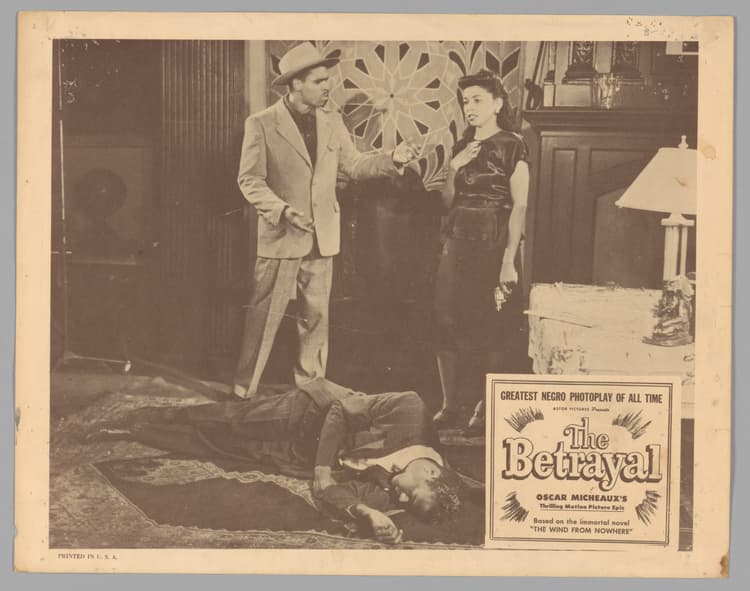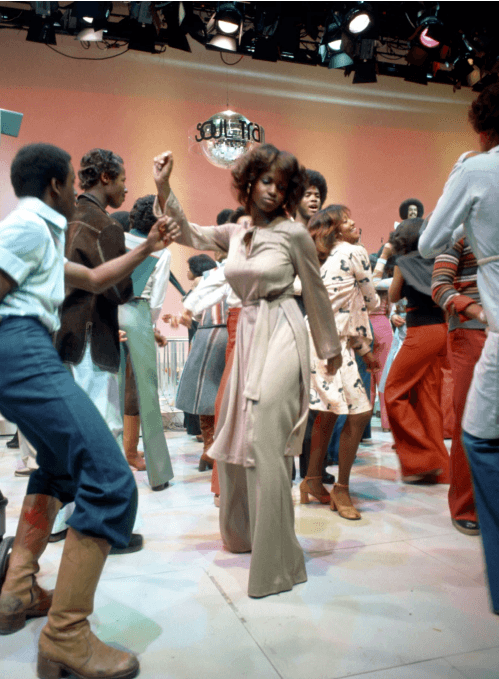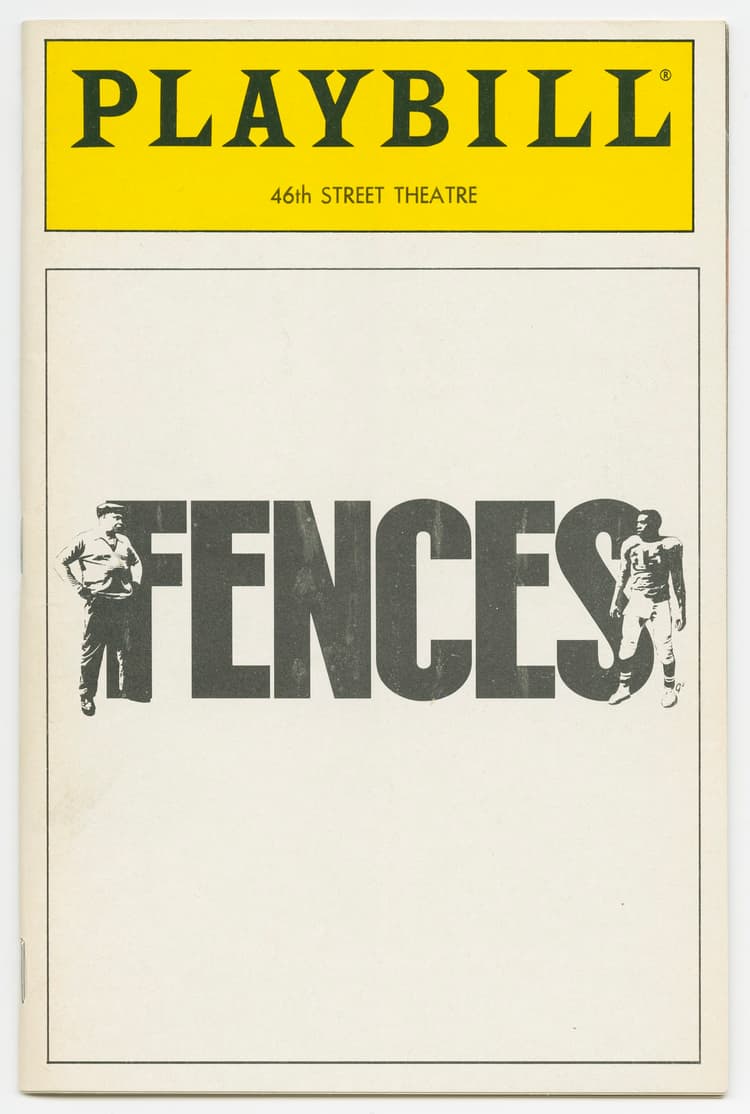Black Life in Theater, TV, and Film
Maya Hall
8 min read
Listen to this study note
Study Guide Overview
This AP African American Studies study guide covers representation in media, focusing on film, television, and theater. Key topics include the contributions of Oscar Micheaux, the cultural impact of Soul Train, the influence of the Great Migration on Black theater, and the evolution of Black representation on television. The guide provides practice questions, exam tips, and emphasizes connecting these topics to demonstrate understanding.
#AP African American Studies: Stage & Screen Study Guide
Hey there! Let's get you prepped for the AP exam. This guide is designed to be your go-to resource, packed with everything you need to feel confident and ready to ace it. We'll break down the key concepts, make connections, and give you some memory aids to help everything stick. Let's do this! 💪
#
Representation in Media: An Overview
This section covers how African Americans have been portrayed in theater, TV, and film, highlighting the struggles and triumphs in achieving authentic representation. We'll explore key figures, movements, and their cultural impact. Remember, the AP exam loves to connect these different areas, so pay attention to the big picture!
# Oscar Micheaux: Breaking Barriers 🎬
- Pioneering Filmmaker: Oscar Micheaux was a total game-changer, producing and directing nearly 50 films between the 1920s and 1940s.
He challenged the racist stereotypes common in mainstream cinema, creating complex Black characters.
- Countering Racism: His 1920 film Within Our Gates directly responded to the racist Birth of a Nation, depicting the horrors of lynching and the resilience of Black communities.
- Talent Showcase: Micheaux provided opportunities for all-Black casts to showcase their talents in diverse roles.
- Legacy: He laid the foundation for future generations of Black filmmakers, actors, and producers.

# Soul Train: A Cultural Phenomenon 🕺🏾
- Longest-Running Program: Created by Don Cornelius in 1971, Soul Train aired for over three decades, becoming a cultural institution.
- Music and Dance Platform: It featured live performances by R&B, soul, and hip-hop artists, and showcased the latest dance trends.
- Mainstream Exposure: Soul Train introduced mainstream audiences to iconic Black artists and served as a source of pride and representation for African American viewers.
- The Soul Train Line: The iconic dance line became a cultural phenomenon.
- Influence: The show's influence extended beyond the screen, with the Soul Train Awards honoring Black music and entertainment.

Practice Question
Multiple Choice Questions:
-
Oscar Micheaux is best known for: (A) Directing Hollywood blockbusters (B) Pioneering independent Black filmmaking (C) Starring in Birth of a Nation (D) Creating the Soul Train dance line
-
Which of the following best describes the impact of Soul Train? (A) It promoted racial segregation in the music industry. (B) It provided a platform for Black artists and celebrated Black culture. (C) It focused solely on classical music and ballet. (D) It had no influence on popular culture.
Short Answer Question:
Briefly explain how Oscar Micheaux used his films to challenge racial stereotypes in the early 20th century.
#
Migration, Economics, and Media
This section explores how the Great Migration and economic factors influenced the development of Black theater and television. Understanding these connections is crucial for the exam.
# Black Theater in Urban Centers 🎭
- The Great Migration: The Great Migration led to a flourishing of Black theater in urban centers.
- Professional and Community Theaters: Companies emerged, producing plays addressing the social, political, and economic realities of Black life.
- Key Theaters: The American Negro Theater in Harlem and Chicago's African American Little Theater Movement were hubs of creativity.
- Themes: Black playwrights explored themes of racism, identity, and the Black experience.
- Groundbreaking Plays: Lorraine Hansberry's A Raisin in the Sun and August Wilson's Pittsburgh Cycle are essential examples.

# Diverse Black TV Portrayals 📺
- Evolving Representation: As TV evolved, African American characters and stories began to reflect the diversity of Black life.
- Sitcoms: Shows like The Jeffersons and The Fresh Prince of Bel-Air depicted Black families achieving upward mobility.
- Working-Class Families: Shows like Good Times and What's Happening!! portrayed working-class Black families facing everyday challenges.
- Contemporary Series: Series like Black-ish and Insecure continue to showcase the complexities of Black life with wit and authenticity.
Practice Question
Multiple Choice Questions:
-
The Great Migration directly contributed to: (A) The decline of Black theater in urban centers. (B) The rise of Black theater in urban centers. (C) The end of segregation in Hollywood. (D) The popularity of minstrel shows.
-
Which of the following is NOT a characteristic of the TV show The Jeffersons? (A) It depicted a Black family achieving upward mobility. (B) It was a spin-off of All in the Family. (C) It portrayed a working-class family struggling to make ends meet. (D) It followed a family's move to a luxury high-rise.
Short Answer Question:
Explain how the sitcoms The Jeffersons and The Fresh Prince of Bel-Air contributed to diverse portrayals of Black life on television.
#
Connecting the Dots
Remember, the AP exam often asks you to connect different areas. Here are some key connections to keep in mind:
- Micheaux & Mainstream: Micheaux's work directly challenged the racist portrayals in mainstream cinema, setting the stage for future Black filmmakers.
- Migration & Theater: The Great Migration created the conditions for the flourishing of Black theater in urban centers, providing a platform for Black voices.
- Soul Train & Cultural Identity: Soul Train became a powerful symbol of Black pride and cultural identity, influencing fashion, music, and dance.
- TV Sitcoms & Social Commentary: Sitcoms like Black-ish and Insecure use humor to address complex issues of race, identity, and relationships.
Mnemonic for remembering key connections: Micheaux Challenges Mainstream, Migration Fuels Theater, Soul Train Inspires Culture, TV Sitcoms Comment Society (MCM, MFT, STIC, TSCS)
#Final Exam Focus 🎯
Alright, here’s the final rundown to make sure you’re exam-ready:
- Highest Priority Topics:
- Oscar Micheaux's independent filmmaking and its impact.
- The cultural significance of Soul Train.
- The influence of the Great Migration on Black theater.
- The evolution of Black representation in television.
- Common Question Types:
- Multiple-choice questions testing your knowledge of key figures, events, and media.
- Short answer questions requiring you to explain the impact of specific works or movements.
- Free-response questions asking you to analyze the connections between different areas.
- Last-Minute Tips:
- Time Management: Don't spend too long on any one question. Move on and come back if you have time.
- Common Pitfalls: Avoid vague answers. Use specific examples and details to support your points.
- Strategies: Read the questions carefully, underline key words, and plan your responses before you start writing.
Remember to use specific examples from the provided sources (like the lobby card, the Soul Train photo, and the playbill) in your responses to earn maximum points.
Don't just list facts. Analyze and explain the significance of those facts. Why does it matter? What impact did it have?
Practice Question
Free Response Question (FRQ):
Analyze the ways in which African American artists have used theater, television, and film to challenge racial stereotypes and promote positive representations of Black life. In your response, be sure to discuss the work of at least two specific artists or productions. (15 points)
Point-by-Point Scoring Breakdown:
- Thesis Statement (1 point): A clear and defensible thesis statement that addresses the prompt.
- Analysis of Oscar Micheaux (5 points):
- Identification of Micheaux as a pioneer of independent Black filmmaking.
- Discussion of how his films challenged racist stereotypes.
- Specific examples from his films (e.g., Within Our Gates, Body and Soul).
- Explanation of his impact on future generations of Black filmmakers.
- Use of the lobby card for The Betrayal as evidence.
- Analysis of Soul Train (5 points):
- Identification of Soul Train as a cultural phenomenon.
- Discussion of how it promoted Black music, dance, and fashion.
- Specific examples of artists or cultural elements featured on the show.
- Explanation of its impact on Black identity and pride.
- Use of the Soul Train photo or video as evidence.
- Synthesis and Connections (4 points):
- Demonstrates understanding of the connections between the different areas of study.
- Explains how these artists and productions contributed to a broader movement for positive representation.
- Provides a thoughtful conclusion that summarizes the main points.
You've got this! Stay confident, stay focused, and go crush that exam! 🚀
Continue your learning journey

How are we doing?
Give us your feedback and let us know how we can improve





